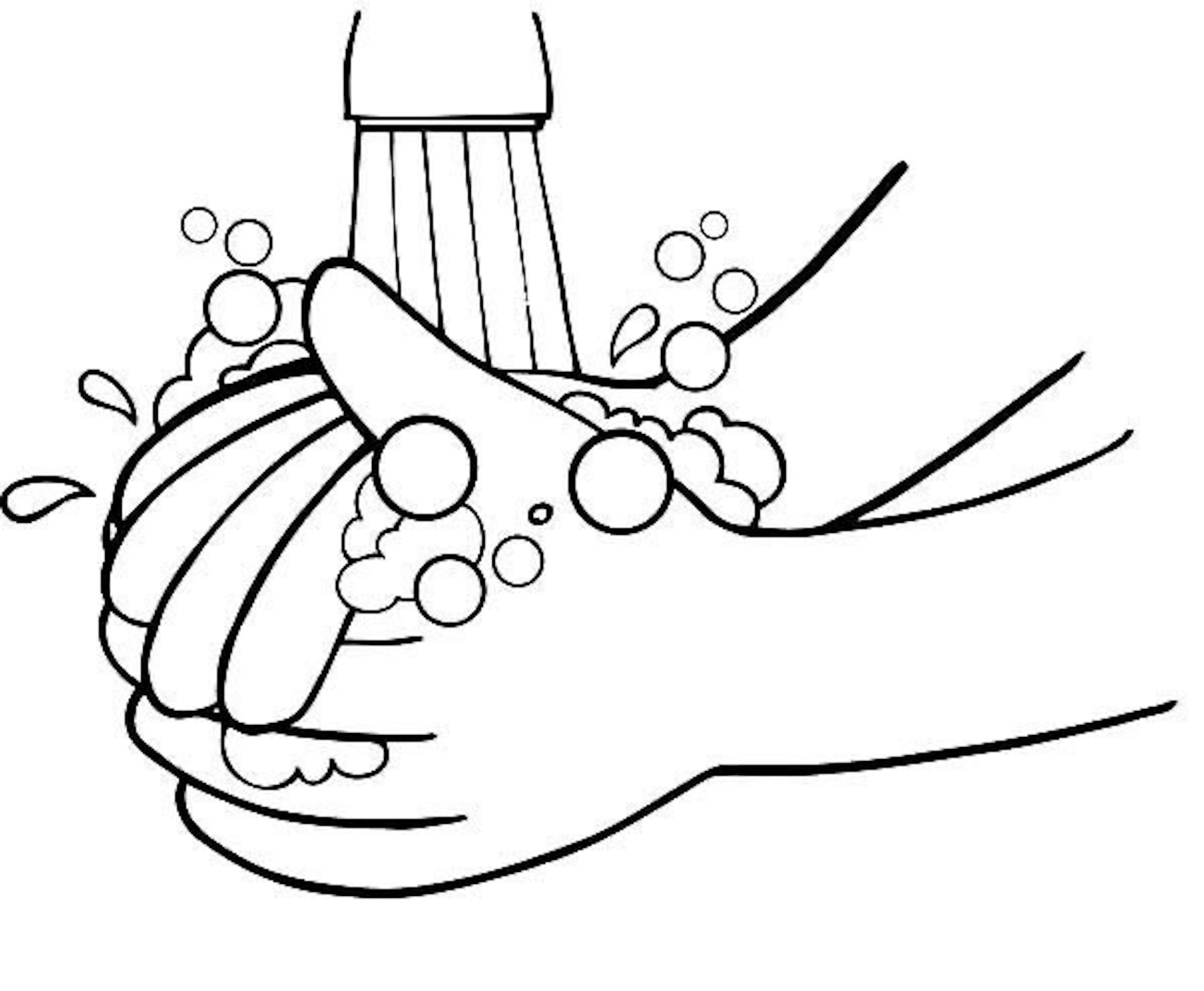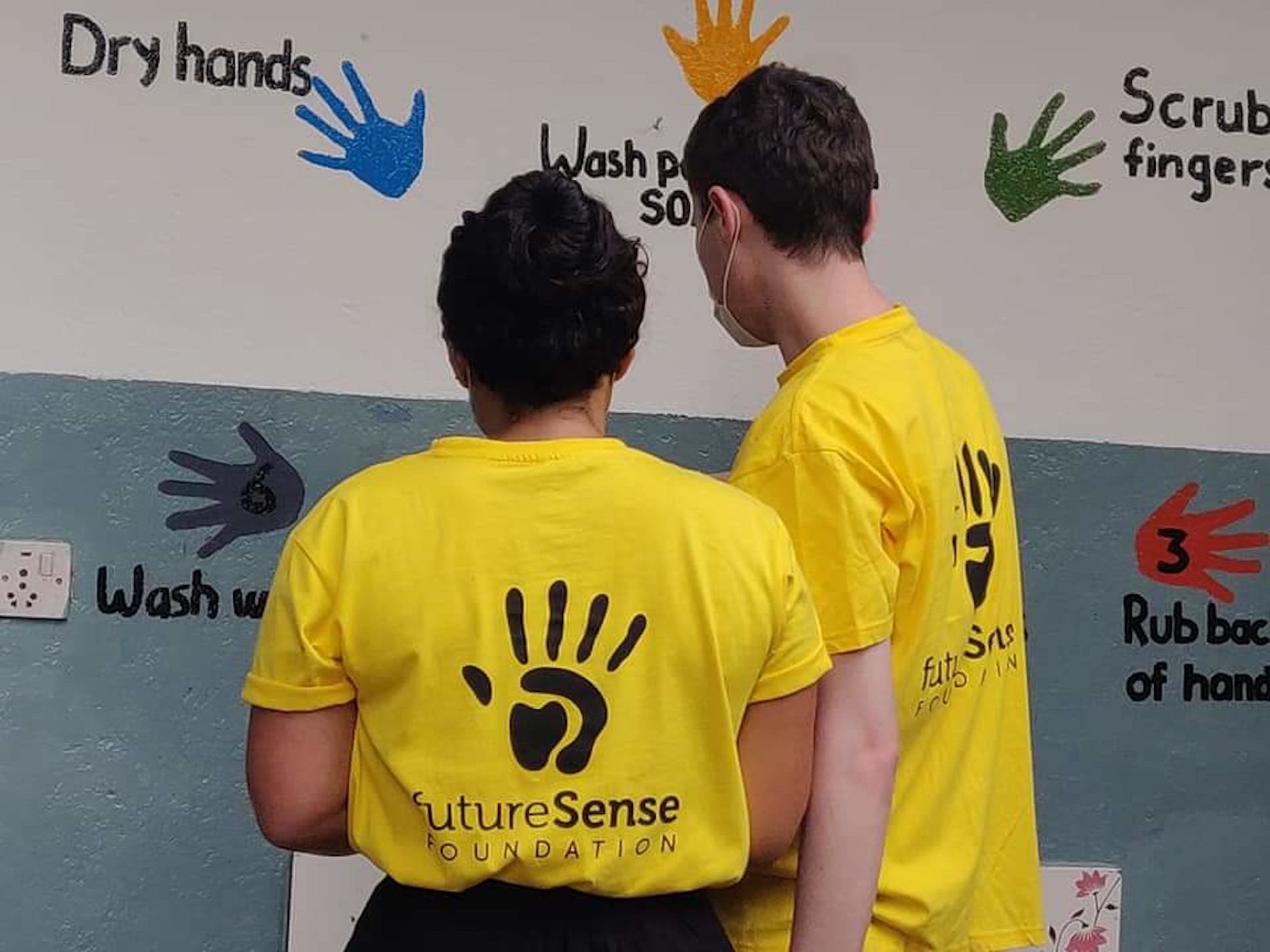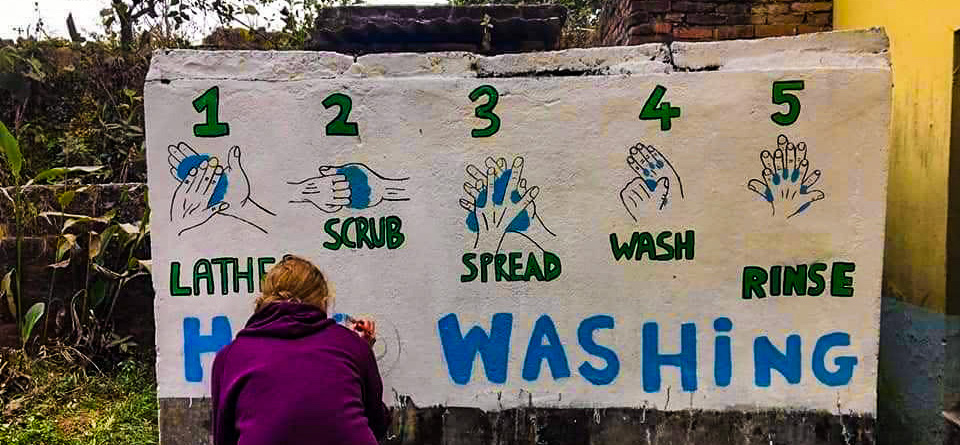How hand-washing workshops may now be saving lives
Many Nepalese woke up on Wednesday 23rdMarch, 2020 to an SMS from the Ministry of Health and Population: ‘Let’s wash our hands with soap and water regularly and if possible refrain from going to crowded places to be safe from coronavirus disease. Cover your mouth and nose while coughing or sneezing.’ Now, the message is even repeated when you call someone on your mobile phone. The announcement is one of the Government’s strategies to stop the spread of COVID-19.

Many of us would assume that everyone knows how to wash their hands properly and the reasons why it’s so important, however the recent outbreak of COVID-19 and recommendations for hand-washing globally as being a way to prevent the spread of the virus has illustrated just how important and even life-saving this act can be.
Handwashing is considered a very simple act, generally ignored in most Nepalese communities. As a result, many children in Nepal suffer from avoidable communicable disease. Despite global advancements, there is still a widespread lack of awareness and knowledge about how to effectively wash one’s hands, even in Kathmandu, the capital of Nepal! Because of this, handwashing has always been a common theme of our Health Promotion initiatives in Nepal.
Our Health Promotion volunteers that worked in Nepal between November and February this summer had the simple act of handwashing as a core focus of their health promotion activities. The volunteer teams delivered a number of workshops to children and teachers at schools in both Dhulikhel and Kathmandu which focused on the ‘seven steps of handwashing’. These workshops helped to develop good hygiene practices within the communities where we work and help to ensure a healthy future for these communities. Our volunteers were particularly creative and produced a variety of resources to aid the delivery of their workshops, and also ensured sustainability by providing a way for the information to be delivered by teachers throughout the year.

The volunteer teams were also able to install and provide soap holders at handwashing stations in some of the local schools and painted colorful murals to help remind everyone how to properly wash their hands. These beautiful murals also helped to brighten up school environments and add some excitement to the handwashing act. At one of our partner schools, we were even able to install a completely new handwashing station, creating an easy way for staff and students to wash their hands properly and reduce the risk of communicable diseases being transferred to one another.
Throughout this summer period, we saw 25 Health Promotion volunteers deliver 79 sessions at our partner schools, which engaged 242 school members, including the school staff! What has always been a key message of Challenges Abroad and our charity the FutureSense Foundation is the power of delivering education through our school partners and children. We believe that school children are such a powerful means of spreading the knowledge they learn to others and can easily influence their parents, friends and other community members to adopt these important practices.
Challenges Abroad and FutureSense aim to have a positive impact on the lives of our global community, both in Australia and overseas. We have always recognized and seen the impact our volunteers and overseas teams have had on our partner communities, but this story from Nepal has been such a positive reminder of how just how important the contribution of our volunteers is, and how these simple acts can literally make a world of difference.





